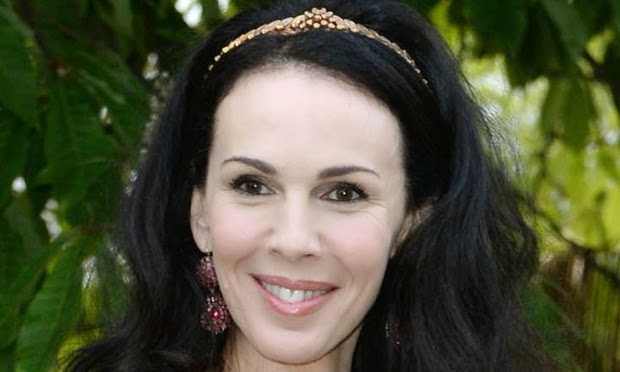The drop of up to 41 per cent was hailed as ‘spectacular’
British patients started with the worst odds of survival
Breast cancer death rates in England and Wales were the highest in Europe
Levels represent biggest fall of any European country from 1989 to 2010
Death rates from breast cancer in Britain have fallen the most – and at the fastest rate – across Europe in the last two decades.
The drop of up to 41 per cent was hailed as ‘spectacular’ and will be an enormous morale-booster for women fighting the disease who now have their best chance of beating it.
Although experts point to better treatments and NHS care, the improvements are marked because British patients started with the worst odds of survival.
Death rates from breast cancer in Britain have fallen the most and at the fastest rate across Europe in the last two decades
In 1987-9, breast cancer mortality rates in England and Wales were the highest in Europe at 41.9 per 100,000 women.
Latest data reveals that by 2008-2010, the figure was down to 25.4 per 100,000 – a drop of 40.8 per cent.
More...
Healthy girl, 11, developed anorexia after primary school weigh-in which told her she was 'at risk' of being overweight and plummeted to just THREE STONE
Mail readers raise £13k for girl denied NHS op: Donations mean family of toddler who needs surgery to walk have more than half their target
Read more: http://www.dailymail.co.uk/health/article-2585768/Breast-cancer-deaths-plunge-British-fall-fastest-Europe-two-decades.html#ixzz2whRgh1Ag
Follow us: @MailOnline on Twitter | DailyMail on Facebook
The plummeting levels represent the biggest fall of any European country from 1989 to 2010 and include patients under 50 who often suffer more aggressive cancers.
The second highest fall was in Scotland, which had a 37.9 per cent cut in rates, followed by Northern Ireland with a 33.5 per cent decrease.
Mortality rates were 25.1 per 100,000 women in Scotland in 2010 and 25.6 in Northern Ireland, meaning the UK is on a par with the best in Europe.
The plummeting levels represent the biggest fall of any European country from 1989 to 2010
Professor Philippe Autier presented the findings at the European Breast Cancer Conference in Glasgow, saying his figures showed England and Wales were ‘best in class’.
He said: ‘The drop in the UK is really spectacular and it’s now close to all groups of other countries.’
The expert, of the International Prevention Research Institute in Lyon, France, said his research shows how the improvement in the UK has gathered pace.
‘The other very good news is that we were thinking that the decrease would level off, or stabilise but there has been an acceleration,’ he added. ‘There is no limit that we can see.’
The fall in death rates was around one per cent a year from the early 1990s but was nearly two per cent annually more recently.
Prof Autier said he hoped that by 2060 ‘only the most complex cases would prove fatal’.
Although the number of breast cancer cases continues to rise, reaching around 50,000 a year, the current death toll of almost 12,000 is much lower than two decades ago, he added.
Prof Autier attributed the ‘dramatic’ change to better treatments, better awareness among women and health professionals, and better organisation within the NHS.
However, he added, the fall in deaths would not have been possible without advances in drugs and other treatments.
New, more effective drugs and the growing availability of multi-disciplinary treatments should encourage a further downward trend in deaths from breast cancer, he predicted.
In 1987-9, Romania had Europe’s lowest death rates, at 20 per 100,000. However, by 2008-2010, the country was recording 22 per 100,000, meaning mortality levels have risen.
The figures also show France was one of the worst performing countries over the last 20 years, with a cut of only 17 per cent in death rates.
It had the lowest reduction of any European country in death rates of women under 50.
Prof Autier said ‘there is something going on here that we don’t understand’ as France devotes substantial resources to cancer care and women there have access to the best treatment.
But screening has failed to make an impact in countries like the UK as it did not detect deadly cancers at an earlier stage, he added.
Baroness Delyth Morgan, chief executive of Breast Cancer Campaign, said: ‘By continuing to invest in vital research, we will be able to overcome breast cancer by 2050.’
Dr Richard Francis, research manager at Breakthrough Breast Cancer, said routine access to new treatments is vital to cutting death rates.
He added: ‘Breast cancer is not yesterday’s problem – one woman is diagnosed every ten minutes.’
News Source:www.dailymail.co.uk

.jpg)
